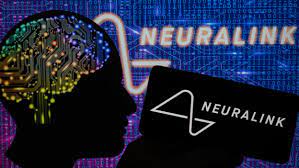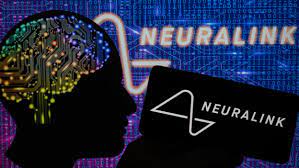
Elon Musk, the billionaire founder of the brain-chip startup Neuralink, announced on Sunday that the first human patient had gotten an implant and was doing well.
"Preliminary findings indicate encouraging neuron spike identification," Musk wrote in a post on the social media site X.
Neurons, which the National Institutes of Health defines as cells that employ chemical and electrical signals to transfer information to and from the body throughout the brain, are the source of spikes in activity.
The company's first human implant experiment was approved by the US Food and Drug Administration last year, marking a significant step towards its goal of assisting patients in overcoming paralysis and various neurological diseases.
Neuralink stated in September that it was approved to begin recruiting participants for the human trial.
According to a recent statement from Neuralink, the project employs a robot to surgically implant a brain-computer interface (BCI) implant in a part of the brain that governs the intention to move. Its primary objective is to allow people to operate a computer cursor or keyboard with just their thoughts.
According to Neuralink, the "ultra-fine" threads in the implants aid in signal transmission throughout the subjects' brains. Elon Musk said in a different post on X that Telepathy will be the name of Neuralink's initial product.
In order to assess the safety of the implant and surgical robot, the business is conducting a study for its wireless brain-computer interface called PRIME Study.
There were no comments on the issue available from Neuralink.
The business has been under pressure to examine its safety procedures. The U.S. Department of Transportation (DOT) punished the corporation for breaking regulations pertaining to the transportation of hazardous commodities, according to a Reuters article earlier this month.
The company was estimated to be worth $5 billion in June of last year. However, veterinary records revealed problems with the implants on monkeys, including paralysis, seizures, and brain swelling. In late November, four lawmakers asked the U.S. Securities and Exchange Commission to look into whether Musk had misled investors about the safety of its technology.
On September 10, Elon Musk claimed on social media that "no monkey has died as a result of a Neuralink implant." In order to reduce the risk to healthy monkeys, he said, the corporation selected "terminal" animals.
(Source:www.businesstoday.in)
"Preliminary findings indicate encouraging neuron spike identification," Musk wrote in a post on the social media site X.
Neurons, which the National Institutes of Health defines as cells that employ chemical and electrical signals to transfer information to and from the body throughout the brain, are the source of spikes in activity.
The company's first human implant experiment was approved by the US Food and Drug Administration last year, marking a significant step towards its goal of assisting patients in overcoming paralysis and various neurological diseases.
Neuralink stated in September that it was approved to begin recruiting participants for the human trial.
According to a recent statement from Neuralink, the project employs a robot to surgically implant a brain-computer interface (BCI) implant in a part of the brain that governs the intention to move. Its primary objective is to allow people to operate a computer cursor or keyboard with just their thoughts.
According to Neuralink, the "ultra-fine" threads in the implants aid in signal transmission throughout the subjects' brains. Elon Musk said in a different post on X that Telepathy will be the name of Neuralink's initial product.
In order to assess the safety of the implant and surgical robot, the business is conducting a study for its wireless brain-computer interface called PRIME Study.
There were no comments on the issue available from Neuralink.
The business has been under pressure to examine its safety procedures. The U.S. Department of Transportation (DOT) punished the corporation for breaking regulations pertaining to the transportation of hazardous commodities, according to a Reuters article earlier this month.
The company was estimated to be worth $5 billion in June of last year. However, veterinary records revealed problems with the implants on monkeys, including paralysis, seizures, and brain swelling. In late November, four lawmakers asked the U.S. Securities and Exchange Commission to look into whether Musk had misled investors about the safety of its technology.
On September 10, Elon Musk claimed on social media that "no monkey has died as a result of a Neuralink implant." In order to reduce the risk to healthy monkeys, he said, the corporation selected "terminal" animals.
(Source:www.businesstoday.in)














